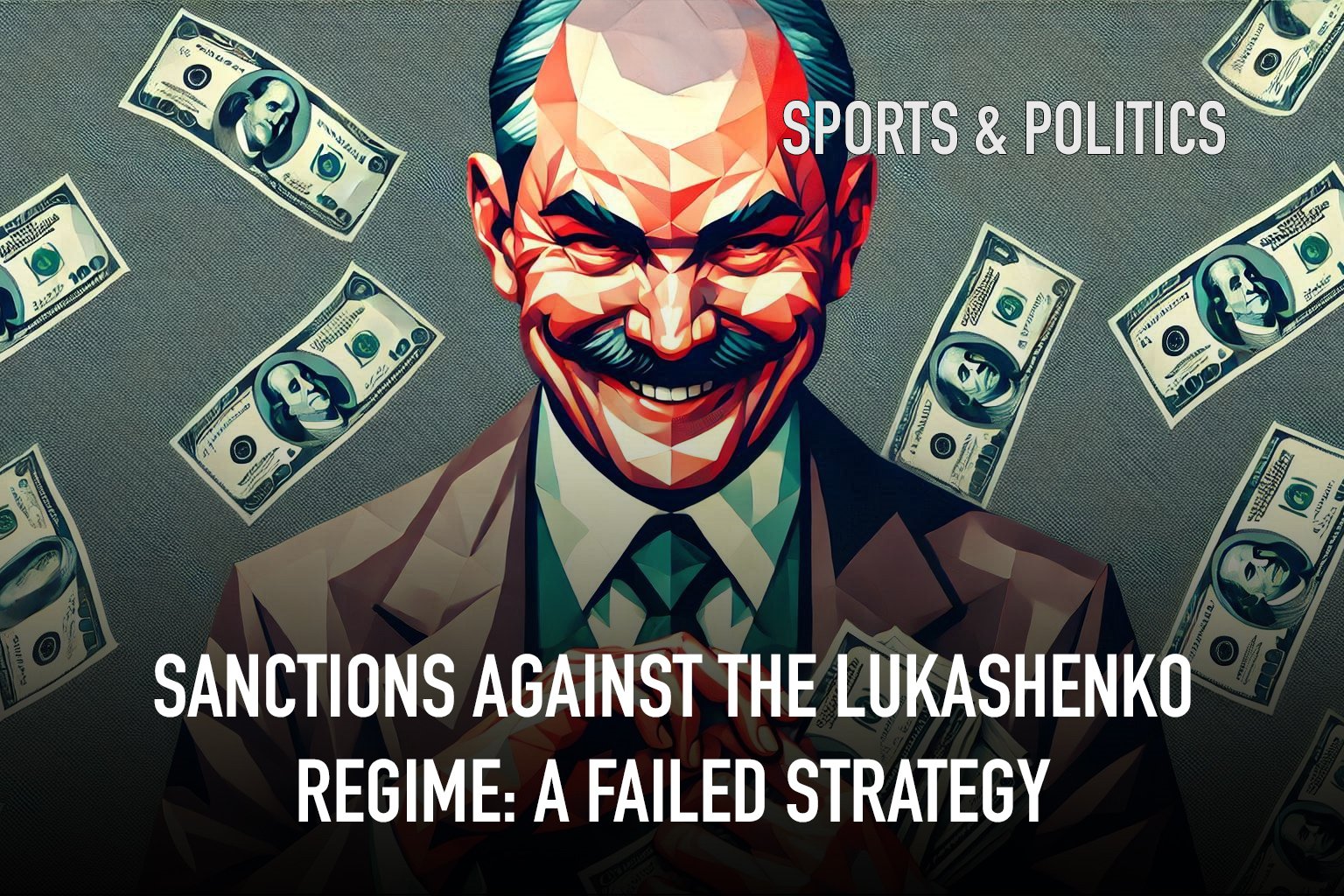SANCTIONS AGAINST THE LUKASHENKO REGIME: A FAILED STRATEGY

As Northern Ireland’s national soccer team prepares for the second game against the sanctioned Belarusian team on neutral territory, the question of the viability and success of sanctions looms large.
The international community has long used sanctions as a tool to pressure authoritarian regimes into compliance with democratic norms and human rights standards. In Belarus, however, the sanctions imposed on the Lukashenko regime following the controversial 2020 elections have not weakened the government. Instead, they have allowed it to adapt and thrive. This article examines the dynamics of these sanctions, highlighting how the regime continues to enrich itself while ordinary people suffer, and get thrown in jail on politically motivated charges by the thousands.
A Regime Resilient to Sanctions
Since the European Union, the United States, and other countries imposed sanctions on Belarus, over 200 individuals and entities have been targeted. These include high-ranking officials, members of the security forces, and various state-owned enterprises. Notable examples of sanctioned enterprises include Belaruskali, one of the world’s largest producers of potash, and Naftan, a major oil refinery. Both companies have found ways to circumvent the sanctions by pivoting their trade toward Russia and other authoritarian-friendly markets such as China and Iran.
State enterprises like Grodno Azot, a chemical and fertilizer producer, and MAZ (Minsk Automobile Plant), a leading manufacturer of heavy vehicles, continue to generate revenue. Their production is no longer destined for Western markets but is now funneled through new trade routes, fueling the regime’s finances. Lukashenko has also personally benefited from this system, with his inner circle growing wealthier, even as the general population suffers.
The Suffering of Ordinary People
While the regime thrives, ordinary Belarusians bear the brunt of the economic fallout. Reports indicate that many citizens face long hours in line at the border with the European Union. Humiliating searches for cigarettes or snacks have become common, as customs officials impose strict regulations. The disparity between the elite’s wealth and the struggles of everyday citizens is stark, with many families unable to afford necessities.
More alarmingly, thousands of Belarusians are facing political trials and imprisonment on political grounds. Political prisoners are held incommunicado, cut off from the outside world, while new arrests happen daily across the country. Persecution and repression remain a constant under Lukashenko’s regime, and no one is exempt — not even athletes.
Impact on Sports and the Next Generation
Sanctions have also extended to the sports sector, impacting not just the elite but also grassroots athletes. Young athletes, eager to compete, are now barred from participating in events across Europe and other civilized nations. This exclusion is pushing them toward Russia, where they are welcomed with open arms. Propaganda from the Russian regime effectively frames this transition as a supportive move, fostering a sense of belonging among these young competitors.
As these athletes grow, there is a risk that they will turn away from the European Union and the United States, blaming them for their isolation. This narrative, fueled by the regime’s propaganda, threatens to shape the attitudes of a new generation in Belarus, fostering a sense of resentment toward the West.
Conclusion
Sanctions have failed to achieve their intended goals in Belarus, as they have in many other authoritarian regimes. History shows no clear proof that sanctions lead to meaningful political change. The Ayatollahs in Iran, Kim Jong Un in North Korea, and Vladimir Putin in Russia have all found ways to survive and thrive under sanctions, often turning the blame on foreign enemies while ordinary people are left to suffer.
In Belarus, while the stability of the country remains vague, one thing is clear: the Lukashenko clan is getting richer. The media, whether inadvertently or by following Russian propaganda, have turned a freedom-loving nation into a monster in the eyes of the world. But the people of Belarus live under double occupation—Lukashenko’s regime and Russia’s influence. The last thing they want is war with Ukraine, yet it is they who suffer under the weight of sanctions.
Additionally, thousands of Belarusians are enduring persecution, imprisonment, and daily repression on political grounds. These political prisoners, including athletes, live in incommunicado mode, separated from the world, while new arrests are a daily occurrence. It is crucial that European and American media stop blaming Belarusian athletes and citizens for the political struggles they have no control over. Instead, the focus should be on fighting for their rights, ensuring that they are not punished for a war they are not waging.
